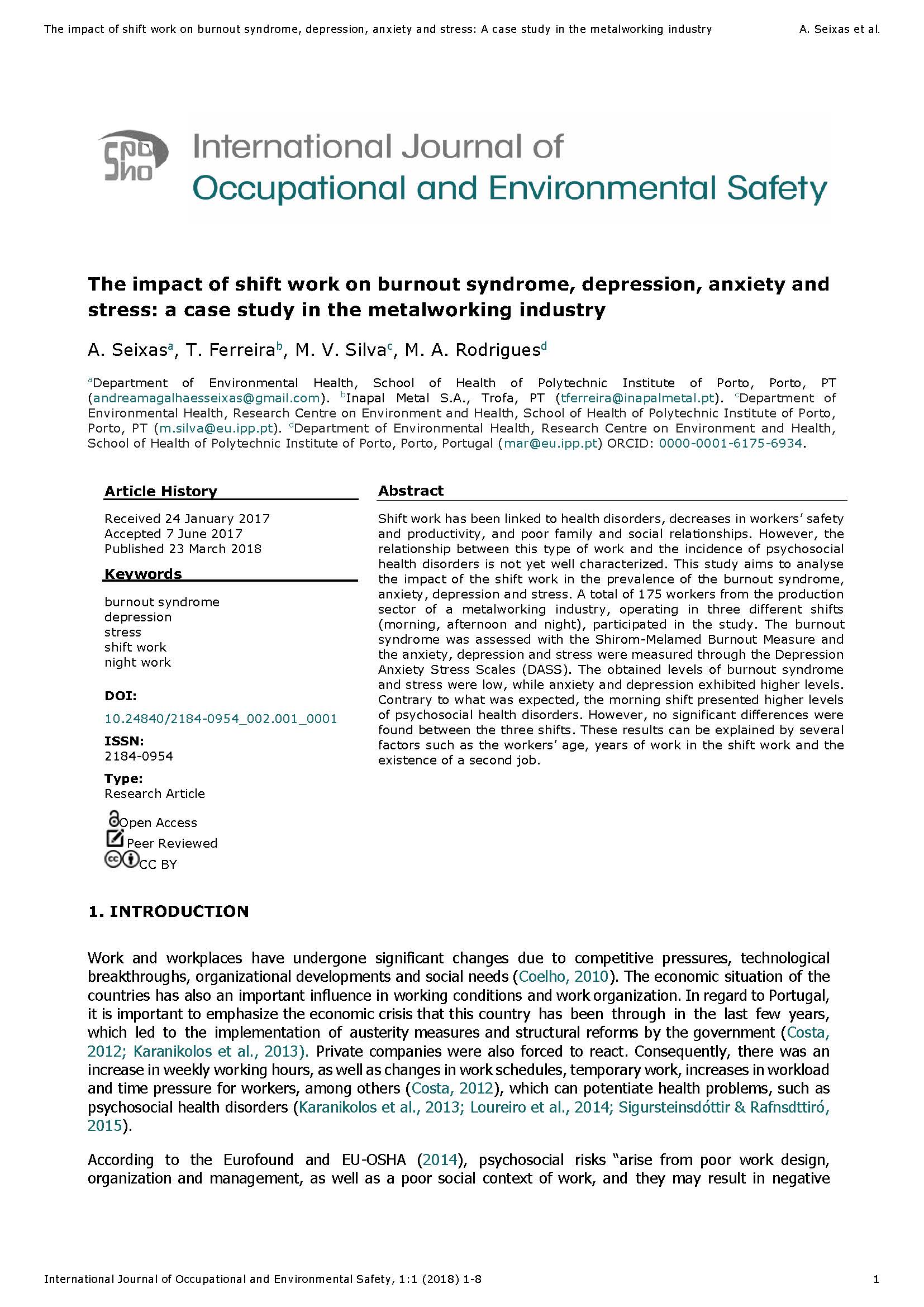The impact of shift work on burnout syndrome, depression, anxiety and stress: A case study in the metalworking industry
Main Article Content
Abstract
Shift work has been linked to health disorders, decreases in workers’ safety and productivity, and poor family and social relationships. However, the relationship between this type of work and the incidence of psychosocial health disorders is not yet well characterized. This study aims to analyse the impact of the shift work in the prevalence of the burnout syndrome, anxiety, depression and stress. A total of 175 workers from the production sector of a metalworking industry, operating in three different shifts (morning, afternoon and night), participated in the study. The burnout syndrome was assessed with the Shirom-Melamed Burnout Measure and the anxiety, depression and stress were measured through the Depression Anxiety Stress Scales (DASS). The obtained levels of burnout syndrome and stress were low, while anxiety and depression exhibited higher levels. Contrary to what was expected, the morning shift presented higher levels of psychosocial health disorders. However, no significant differences were found between the three shifts. These results can be explained by several factors such as the workers’ age, years of work in the shift work and the existence of a second job.

